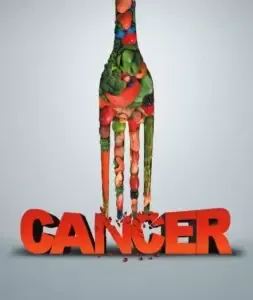Diet Counselling - Cancer and Nutrition
 The six-letter word “cancer” carries a lot of weight and stirs up a lot of strong feelings. It brings fear, uncertainty, and heartache in not just the patient but also the people in the patient’s life. It is unbearably painful to see a loved one struggle with this illness, and the fight itself is draining on both physical and an emotional level. It is a disease that steals people’s health, freedom, and, occasionally, even their lives.
The six-letter word “cancer” carries a lot of weight and stirs up a lot of strong feelings. It brings fear, uncertainty, and heartache in not just the patient but also the people in the patient’s life. It is unbearably painful to see a loved one struggle with this illness, and the fight itself is draining on both physical and an emotional level. It is a disease that steals people’s health, freedom, and, occasionally, even their lives.
The battle with cancer is one that nobody should have to face alone. But despite the difficulty and suffering, there is strength, resiliency, and hope. The intricate nature of cancer treatment requires a holistic approach. Proper nutrition is a critical component of cancer treatment.
One of the leading oncologists in India Dr. Sandeep Nayak, the founder of MACS Clinic, says, “Diet and nutrition counseling is a crucial part of cancer treatment. It aims to give patients the nutrients they need to control their condition and preserve their quality of life.”
In this blog, we will discuss the importance of nutrition in cancer treatment, diet counselling for cancer patients, and other aspects of the battle against cancer.
Importance of Nutrition in Cancer Treatment

Addressing Nutritional Deficiencies in Cancer Patients
Overview of a Balanced, Cancer-Fighting Diet
Pre and Post-Operative Diet
Maintaining a nutritious diet before cancer surgery is crucial to enhance healing and lower the chance of complications. This can involve eating a lot of protein to speed up the healing of wounds. To help the body heal effectively after surgery, the patient might need to adhere to a particular diet, such as fluids or soft food diet.
Specific Dietary Recommendations for Cancer Patients
Cancer patients may require a specific diet, depending on their type of cancer and the treatment they are receiving. For instance, individuals with head and neck cancer may need a liquid diet or soft food after surgery. consuming a well-balanced diet rich in fruits, vegetables, whole grains, and lean proteins to support overall health and strength. It is often advised to limit processed foods, sugary beverages, and excessive alcohol consumption, while staying adequately hydrated.
It is important for cancer patients to listen to their bodies, eat smaller, frequent meals to manage side effects.

Diet after Chemotherapy and Other Therapies

Furthermore, it is critical to maintain hydration by consuming lots of fluids, such as water, broth, or herbal tea. Patients receiving radiation therapy may need to avoid spicy foods since they can irritate their tongues and throat. Cancer care counseling can offer tailored suggestions for every patient based on their unique requirements.
Please note: Diet can change during the cancer treatment process because cancer and its treatments can alter your taste, appetite, and digestion.
At MACS Clinic, our dedicated team of onco-surgeons and dietitians assist cancer patients in creating a custom nutrition plan after considering individual requirements and preferences. They take time to discuss any changes in taste, appetite, or digestion with the patients to provide suitable nutritional advice.
Foods you should avoid to lower your cancer risk
Expertise: Our cancer clinic in Bangalore has a highly trained and experienced team specializing in cancer treatment. Dr. Sandeep Nayak, a world-acclaimed oncologist in India, leads them. This can be particularly important in complex procedures like RIA-MIND, which may require specialized knowledge and expertise.
Innovative, advanced treatments: Our cancer clinic in Bangalore offers the patients newer cancer treatments and innovative therapies that are not yet widely available.
Processed meat

Reduce intake of red meat

Avoid alcohol
Conclusion

So, it’s important to get diet and nutrition counseling. Our highly-skilled team at the world-class MACS Clinic is passionate about the fight against cancer and believes it is a battle we can combat together.
With our experience and knowledge, we strive to provide the best cancer treatment in Bangalore.
If you need more information on maintaining a healthy cancer-fighting diet, please do not hesitate to contact us. Our dietitians and nutritionists can provide cancer care counseling and guide you with right diet.
